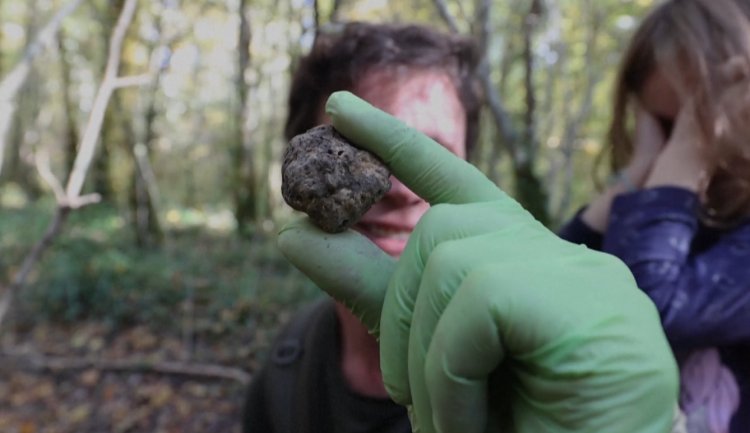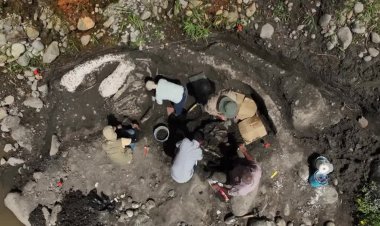Croatia's truffle hunters seek habitat protection amid climate change

The sound of paws scurrying along the forest floor echoes through Croatia's northwestern woods, where the hunt for truffles is being threatened by climate change and deforestation -- stirring fears that the country's gastronomic goldmine may be at risk.
The delicate microclimate in the picturesque Istria peninsula's forests has long been famed for producing some of the finest white truffles, which this year fetched up to 2,500 euros ($2,860) per kilo.
But the increase in temperatures and lower precipitation levels linked to climate change along with a shrinking water table and habitat loss could throw off the natural incubator that produces the luxurious ingredient.
"It's more difficult to find a truffle than to sell it," laments Darko Muzica, who oversees the Istra association of truffle hunters, an advocacy group campaigning to protect the peninsula's white truffle.
Along with climate change and diminishing water tables, Muzica says poor forest management has also threatened future harvests, with officials giving preferential treatment to the timber industry.
A 2014 study on Istria's truffles issued a similar warning, saying: "throughout the world the productivity of natural truffle habitats is shrinking which is often linked with climate change but also the ways the land is used".
Truffle enthusiasts say immediate action is needed to protect the area's habitat.
"The whole region would benefit from it," says Ivan Vukadinovic, who is also a member of the truffle hunter association.















